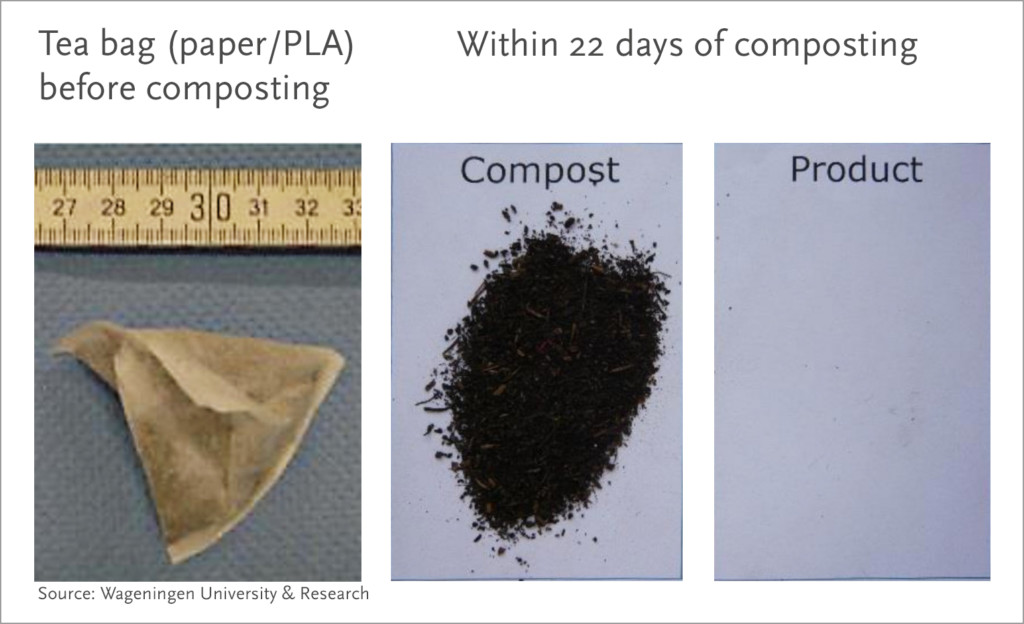A recent study by Wageningen University & Research (WUR), Netherlands, analysed the fate of compostable packaging products in a Dutch full-scale industrial organic waste treatment facility. The independent research results confirm what producers of biodegradable and compostable plastics have been saying for a long time. The different tested EN13432 certified products broke down within a maximum of 22 days.
The study is also an important first step to breaking down a very emotional debate and bringing it to a more fact-based level. In a joint effort, the Dutch Waste Management Association and Holland Bioplastics, the association representing the Dutch bioplastics industry, defined the research questions, which provided the basis for setting-up the project. While the waste management association selected and provided the composting plant where the real life test was conducted, the bioplastics producers provided the compostable plastic packaging samples. The project was commissioned by the Dutch Ministry of Economic Affairs and Climate Policy (EZK). François de Bie, Chairman of European Bioplastics (EUBP), welcomed the initiative: “The study shows that the tested objects have the same disintegration and degradation rate as regular biowaste or are even faster. We need more research of this kind, conducted by independent and renowned institutions”.
Central aim of the study was to gather more empiric data on the question whether the disintegration rate of compostable products is sufficient to be compatible with the current organic waste treatment practices. In an industrial organic waste treatment trial, a set of nine different compostable plastic products, consisting of organic waste collection bags, plant pots, tea bags, coffee pads, coffee capsules, and fruit labels were tested. “We studied how compostable plastics behave in the current Dutch system for the treatment of GFT (i.e source separated municipal biowaste) and came to the conclusion that compostable products can be processed well with GFT“, says Maarten van der Zee, co-author of the study.
To the critics of compostable plastics the results must be stunning: After the first waste treatment cycle of only 11 days, the PLA plant pot already completely disintegrated. “This is significantly faster than paper and most organic matter. Even the orange peel and banana skin (reference materials) did not completely disintegrate and needed more time” de Bie commented on the study. “The PLA tea bag, which is a typical consumer product, also successfully disintegrated within 22 days.”
The study also analysed the visual contamination of compost with plastics. No compostable plastics were identified. “The importance of this result cannot be overstated”, de Bie stresses. “All stakeholders involved in the business of organic recycling, be it waste managers, industry, or legislators, now have the proof that certified compostable plastics actually deliver.”
The publication of the study is a perfect timing as the new European Commission in Brussels is planning further revisions of the regulatory framework affecting bioplastics. “In view of the upcoming development of the framework for biodegradable plastics included in the European Green Deal, I kindly ask the European Commission to take these research results into account and to also support more similar research projects”, stated de Bie.

Seedling certified EN13432 compostable paper/PLA tea bags – before and after 22 days of com- posting in an industrial composting facility.